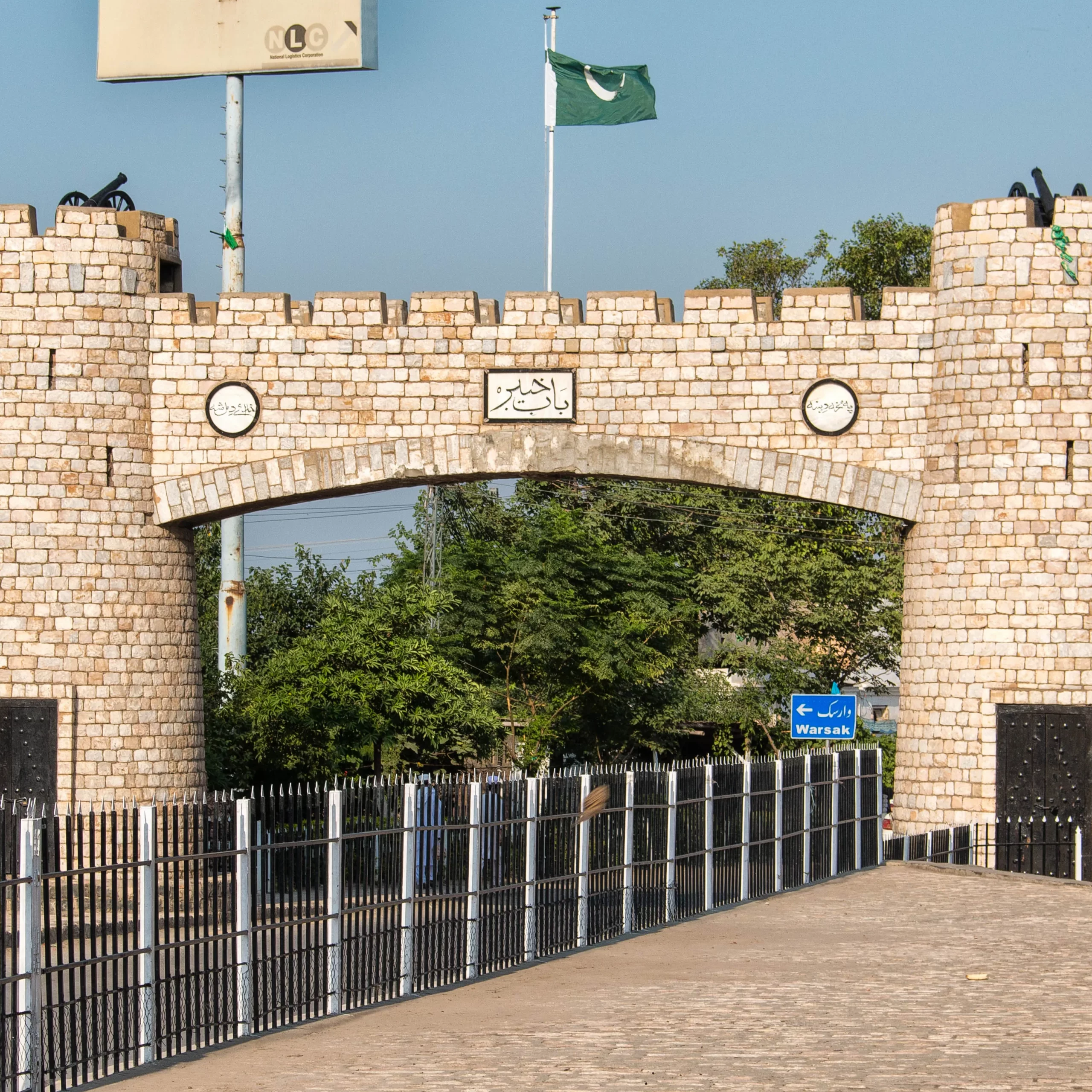The Khyber Pass is a historic mountain pass located in the Khyber district of the Khyber Pakhtunkhwa province in Pakistan, near the city of Peshawar. The pass is an ancient trade route that connects the Indian subcontinent with Central Asia and the Middle East, and has played a significant role in the region’s history for centuries.
The Khyber Pass is approximately 53 km long and rises to an elevation of 1,070 meters above sea level at its highest point. The pass winds through rugged mountain terrain and features steep inclines, narrow valleys, and rocky cliffs that make it both challenging and dangerous to traverse.
Throughout history, the Khyber Pass has been an important trade route and a strategic military position. The pass has been used by merchants and traders for centuries to transport goods and commodities such as silk, spices, and precious metals. The pass has also been the site of numerous battles and conflicts, as rival powers sought to control its strategic position.
Today, the Khyber Pass is a popular tourist destination and a symbol of the region’s rich cultural heritage. Visitors can explore the pass and its surrounding areas and learn about the history and culture of the region. The pass is also an important economic and political center, serving as a gateway between Pakistan and Afghanistan, and a critical hub for trade and commerce in the region.
Despite its challenges, the Khyber Pass remains an enduring symbol of the resilience and perseverance of the people of Pakistan and the region. Its history and cultural significance continue to attract visitors and scholars from around the world, who come to marvel at its natural beauty and learn about its rich cultural heritage.


0 Comment